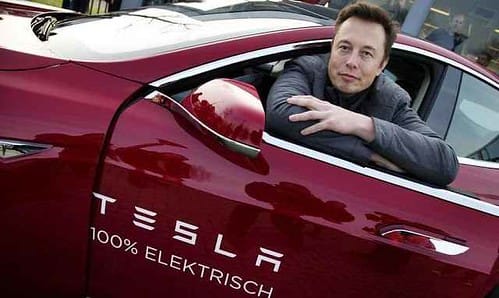Corporate fleet managers across Europe face a new challenge in 2025: reconciling their environmental initiatives with their company’s ethical stance. What started as isolated concerns about Tesla’s CEO Elon Musk has become a measurable trend affecting purchasing decisions at major corporations.
Tscherning, a large Danish construction firm, recently became the latest company to return its entire Tesla fleet, stating it no longer wanted to be “associated with the values and political direction that currently accompany the Tesla brand.” The company emphasised that its decision wasn’t about vehicle quality but about corporate ESG alignment .
The Numbers Tell the Story
No ads. No tracking.
We don’t run ads or share your data. If you value independent content and real privacy, support us by sharing.
Read More
Tesla’s European sales have collapsed dramatically. According to industry data, the company’s sales in the European Union fell 45% in January 2025 alone, from 18,161 vehicles to just 9,945. This follows a 13% decline across 2024, with Germany seeing the steepest drop at 41%.
The deterioration has accelerated since Musk’s increased political visibility. Tesla’s market share in Europe dropped to 9.6% in February 2025, its lowest for that month in five years. Meanwhile, overall electric vehicle sales in Europe rose 37%, indicating the decline is specific to Tesla rather than the broader EV market.
Corporate ESG Policies Drive Fleet Decisions
Tscherning isn’t alone in its decision. German pharmacy giant Rossmann, which operates 4,700 stores across Europe and employs over 62,000 people, announced in 2023 it would stop purchasing new Tesla vehicles for its corporate fleet. Raoul Rossmann, managing director and son of the founder, said Musk’s political positions were “incompatible with the values Tesla represents with its products.”
These decisions reflect how CEO political involvement now directly impacts business partnerships. Companies with robust environmental, social and governance policies find themselves in difficult positions when their suppliers’ leadership takes controversial political stances.
The corporate fleet market represents a significant portion of Tesla’s European business model. These bulk purchases provide quarterly stability and maintain road visibility for the brand. Each returned fleet represents hundreds of vehicles and substantial lost revenue.
The Wider Impact on Brand Perception
The damage extends beyond corporate customers. Current Tesla owners across Europe are selling their vehicles to avoid brand association. Used Tesla prices have plummeted, creating what some describe as a buyer’s market for those willing to overlook the reputational concerns.
Musk’s endorsement of Germany’s far-right Alternative for Germany party and his public support for Donald Trump have particularly resonated negatively in European markets. Tesla protests have emerged across major European cities, with activists targeting showrooms and charging stations.
Helen Wahlgren, a spokesperson from environmental group Restore Wetlands, told Reuters: “This has to do with the company, Elon Musk and the politics he’s standing for.”
Market Share Erosion Accelerates
Tesla’s challenges come as Chinese competitors like BYD gain ground in Europe. BYD reported revenues of £86 billion in 2024, a 29% increase, while selling a similar number of electric vehicles to Tesla globally. The Chinese company’s market value has risen 50% in 2025, whilst Tesla’s shares have fallen 37% from their December peak.
Industry analysts suggest Tesla faces potential layoffs and store closures in Europe if current trends continue. Q2 2025 tracking data shows similar performance to Q1, which was down 40% year-over-year despite the availability of the updated Model Y throughout the quarter.
What This Means for Fleet Managers
Fleet managers now must balance environmental credentials with broader corporate values. European alternatives to Tesla include models from Volkswagen, BMW, Mercedes-EQS, Polestar and other manufacturers that don’t carry the same reputational risks.
Tscherning stated it would replace its returned Teslas with “European alternatives,” reflecting a growing preference for locally-manufactured electric vehicles that align with corporate sustainability goals without the political baggage. This trend mirrors broader corporate reassessments of environmental commitments when they conflict with other business values.
The situation demonstrates how quickly brand perception can shift when CEO actions conflict with corporate customer values. For businesses with strong ESG commitments, the choice between environmental technology and ethical alignment has become increasingly complex.
As more companies review their fleet policies in light of these concerns, Tesla’s European strategy may require fundamental changes. The company that once led the transition to electric mobility now finds itself navigating the consequences of its CEO’s political visibility in markets where such positions prove commercially damaging.
